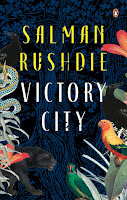Beginners
By Raymond Carver
Alcohol, bad marriages, loneliness, desperation that comes from the loss of dreams… and sometimes, somewhere, a tiny bright ray of hope. That’s what Carver’s stories are about. There are 17 of them in this collection - the original and previously unpublished version of his stories in What We Talk About When We Talk About Love. Each of these 17 is a small gem, shining on tiny slivers of the human condition - rough, ordinary lives with all their attendant miseries and transient joys.
There is Max, alone and drinking, with all his household goods out in the driveway, put out for sale. Until a young couple drives up looking for a bargain and ends up drinking and dancing with Max all night. A tiny moment of connection in a life otherwise going to seed.
There is Duane and Holly, two people trying to make a life for themselves, trying to get past the drinking and the money problems, trying to grow old together. Until the rug is pulled out from under their feet when Duane falls in love with someone else.
Sam Lawton spends his nights hunting slugs in his backyard because he can’t sleep. A book salesman from Chicago meets his estranged father at an airport but has nothing to say to him even when he hears about the desperate tragedy that has visited him - “I had nothing to give him, nothing to give to anyone for that matter. I was all smooth surface with nothing inside except emptiness.”. Ann Weiss loses a young son in an accident and it takes a rough baker to offer some comfort with hot rolls and the words “Eating is a small, good thing in a time like this.”. Bill Jamison can only watch his friend Jerry live what seems an ordinary life, of family and children and weekend get-togethers until a fateful afternoon when he realizes how much of a life of desperation Jerry has been leading; an inner life that the world does not suspect and that inevitably leads him to an act so horrific, he knows it’s a point of no return. James Packer plays bingo with his wife at the local community center on Saturdays and is inexplicably enraged one weekend when he catches someone do some low level cheating. The anger masks the gnawing fear, of losing Edith, of a life slipping away beyond his control, of dreams unfulfilled.
There’s more. The disastrous division of spoils in a marriage gone sour, the despair of an estranged husband watching his family move on with their lives, the memory of love, laughter and dancing on a distant cold winter morning, couples talking about what it means to love someone, unexpected glimpses into the character of people you love that make you question that love.
“After that morning there would be those hard times ahead, other women for him, and another man for her, but that morning, that particular morning, they had danced. They danced, and then they held to each other as if there would always be that morning, and later they laughed about the waffle. They leaned on each other and laughed about it until tears came, while outside everything froze, for a while anyway.” There is always that memory of happiness in most of the stories. It makes the wasteland of a present that much more unbearable.
It’s a tough world Carver depicts. Made tougher by alcohol and human frailty. Love is forever slipping away and so is happiness. But it is a world that you can’t take your eyes off. Like watching a car wreck in slow motion.Carver is mesmerizing.




